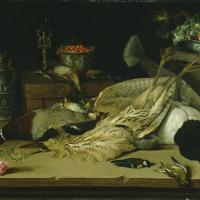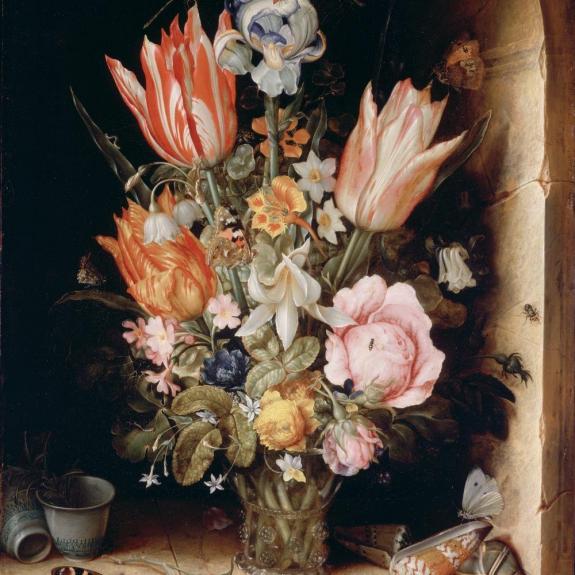Christoffel van den Berghe
Still Life With Dead Birds
$480.00
Christoffel van den Berghe
Christoffel van den Berghe (1590-1645)
Christoffel van den Berghe (1590, Antwerp – 1645, Middelburg) was a Flemish-born Dutch Golden Age painter of landscapes and flower still lifes.
Very little is known about van den Berghe and he was only rediscovered as an independent artist in the 1950s when some works formerly attributed to other artists were reattributed to him. It is believed that he was born in Antwerp and that his family left Flanders to settle in Middelburg. He may have trained under Ambrosius Bosschaert. In 1619 he registered in the Guild of St. Luke in Middelburg and in 1621 he was dean of the Guild.
He primarily painted in two genres: landscapes and flower still lifes. There are four known examples of flower still lifes by his hand. A flower still life in the Philadelphia Museum of Art is signed and dated 'CV BERGHE 1617'. This flower still life in the Philadelphia Museum of Art shows the influence of Ambrosius Bosschaert (who may have been his teacher) and Roelant Savery, two other Flemish-born still life painters who had migrated to the Dutch Republic. His other flower still lifes are similar except for the one held by the Getty Museum, which is signed and dated 'Cv berghe 1624' and a vanitas still life with a skull, shell and a vase of flowers.
A 'Winter landscape' held by the Metropolitan Museum of Art was formerly attributed to Hendrick Avercamp, the pioneer of winter scenes in the Dutch Republic. It resembles another 'Winter landscape' held at the Mauritshuis in The Hague of the same period. The winter landscapes are more reminiscent of similar works painted by Adriaen van de Venne who was Van den Berghe's contemporary in Middelburg. Landscape paintings in Middelburg followed Flemish conventions which explains the earlier attribution of the Mauritshuis painting to Flemish landscape artists David Vinckboons and later to Paul Bril. Van den Berghe painted the figures in his landscapes himself which helps to distinguish him from other artists who would often used specialists for this task.



